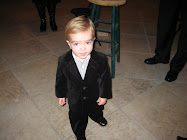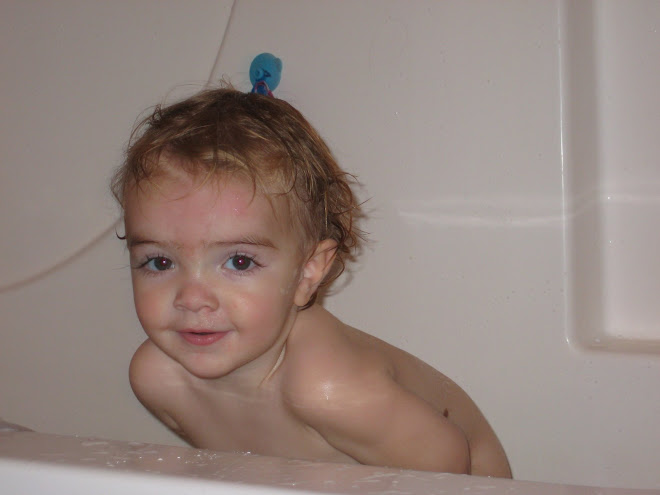
I just started reading the book, Is Your Voice Telling On You? by Daniel R. Boone. I am already impressed. For those of you who are required to vocalize on a regular basis, this book is a tremendous gold mine. Already in the first chapter "Your Voice is Telling on You," Boone aims toward finding your natural voice. Boone acknowledges the person who has "image" (according to Boone this is: degree, physique, fashion, affluence, friends) yet has not considered how his voice sounds. Boone speaks of the confident and knowledgeable business person who through their voice send a message that lacks confidence and appears ignorant. He adds, "How we sound is largely the result of speaking the same way, day after day, over a period of years." He offers checklists and vocal exercises to improve vocal intonation and discovering your natural voice.
This book already aptly applies to music voice students. Presence (or image) is definitely a part of the grading in our class, however if you have not applied some skills to the presence don't bother showing up. =) I also like what Boone says about being confident and knowledgeable. We talked about this in class too. Don't just sing a song to be pretty. Let the knowledge and passion be reflected through your voice. Convince me you mean what you sing. You will have an in-tune listener.
Another factor in the first chapter is on our Vocal "fingerprint" (qualities in our voice that causes someone in the other room to recognize us)are:
-the number of words you say in one breath
-how fast you speak
-your rythm of speech
-your ease in breathing
-the pitch of your voice
-the loudness of your voice
-the relative relaxation or tension of your voice
-your mood state
-the clarity of your speech articulation
-the resonance of your voice
Are you pleased with how your voice sounds on a recording? Does it sound convincing? Sincere? Smooth and at ease? Does it make a good impression on others? Boone recommends developing an awareness of different voices and how they compare to your own.
Here are some descriptions Boone gives to some famous voices:
This book already aptly applies to music voice students. Presence (or image) is definitely a part of the grading in our class, however if you have not applied some skills to the presence don't bother showing up. =) I also like what Boone says about being confident and knowledgeable. We talked about this in class too. Don't just sing a song to be pretty. Let the knowledge and passion be reflected through your voice. Convince me you mean what you sing. You will have an in-tune listener.
Another factor in the first chapter is on our Vocal "fingerprint" (qualities in our voice that causes someone in the other room to recognize us)are:
-the number of words you say in one breath
-how fast you speak
-your rythm of speech
-your ease in breathing
-the pitch of your voice
-the loudness of your voice
-the relative relaxation or tension of your voice
-your mood state
-the clarity of your speech articulation
-the resonance of your voice
Are you pleased with how your voice sounds on a recording? Does it sound convincing? Sincere? Smooth and at ease? Does it make a good impression on others? Boone recommends developing an awareness of different voices and how they compare to your own.
Here are some descriptions Boone gives to some famous voices:
 William Buckley: burnished, cello-like, cool, deep, golden, heavy, melodious, relaxed, resonant, sophisticated, velvety
William Buckley: burnished, cello-like, cool, deep, golden, heavy, melodious, relaxed, resonant, sophisticated, velvety  Barbara Walters: abrasive, affected, burnished, clangy, friendly, intimidating (at times), sophisticated, whining
Barbara Walters: abrasive, affected, burnished, clangy, friendly, intimidating (at times), sophisticated, whiningIf you think your voice does not match you well, listen to a recording of yourself. Write some vocal descriptions down then let someone else listen and do the same. Now listen to some people you have heard and list the qualities you find there. Boone then suggests to practice these vocal qualities and find your natural voice.













10 comments:
Hey, this sounds pretty interesting! Maybe I'll have to read it! (Or maybe not, since you give a lot of neat info here! jk)
Have you ever read, "The Soprano on Her Head"? It's a great book about being nervous and how to deal with it. It's for all types of performers and speakers, not just singers. Very interesting and helpful!
Interesting post.. I'll have to find something to record my voice on..Maybe a future feature for the iPhone..? lol jK
Hey folks. Great timing for a new read. After stepping down from my training position at Nationwide a year ago, they've asked me to come back and teaching "Presentation Skills" to their leadership group. It's amazing how many people in leadership, who got their because they knew how to get things done, but now are realizing communicating with the masses is crucial! Intonation is very important. I'm still excited about (someday) attending the voice over school in San Francisco. What we hear on radio and on tapes sounds like "oh he's got a great voice" when in reality, it should be "he's got a great TRAINED voice". It's such a science.
Thanks for the post. I'll be thinking about/working on that myself!
HAPPY BIRTHDAY VONDELEIGH!!!!!!!!!!!!! Love you lots, you are the best!!! Thanks for being a FABULOUS friend! You are always a blast and I miss you so much, being out there in AL. See you in a couple weeks!! *HUGS***
ps. The voice thing really is so interesting! I read it again, and remembered Don Kendrick. (James, you know who I mean too) He must have read this book, because once in a while he'd relax that "deep resonating voice" and his natural voice sounded a little flat and high. Voices are really interesting to listen to!
Janell, thanks for the b-day wishes. I am fortunate to have you as one of my FABULOUS friends too. I love you very very much and am so happy for the blessings God is pouring into your life right now. ...About the post, I totally thought of Don Kendrick too. He was amazingly talented with his voice. I think most of the time he trained himself to speak with a deep resonating voice... but yes, I remember times when he would become really high and flat. It really is an interesting topic.
Vonney, isn't that funny? Nobody even thinks about a good ol' tape recorder anymore. (Whats a tape? lol)
James, Its definitely a good informatvive read. I recommend it so far. That's really exciting about you going and teaching. You have a great speaking voice so I'm sure it won't take much work for you to master the sound you're after. Voice Over school in SF??? Wow James! That's awesome. You know voice over artists make mucho mula?????
Happy birthday to you......LOTS OF LOVE TO MY BESTEST BUDDY! Hope you have the best birthday ever.
See you soon **Smile**
Amy
Happy Birthday VonDe! You are a great singer, friend and blog bud! Love ya!
Amy and Vonney, thanks for the Birthday wishes... its really lazy so far. Everyone is sick with this bug going around. haha Other than that its happy. Love you guys.
Very Interesting! I think I need to read that book! I hate hearing myself on recording. Oh great!
~Kristy
Kristy, I have my thoughts on that as well. First, get used to hearing yourself in a recording before you choose to dislike your sound. The intitial "hearing" sounds like a little kid if we've never heard ourselves before. Once this is established then analyze the characteristics (tinny, nasal, harsh, etc.) Its very interesting isn't it?
Post a Comment